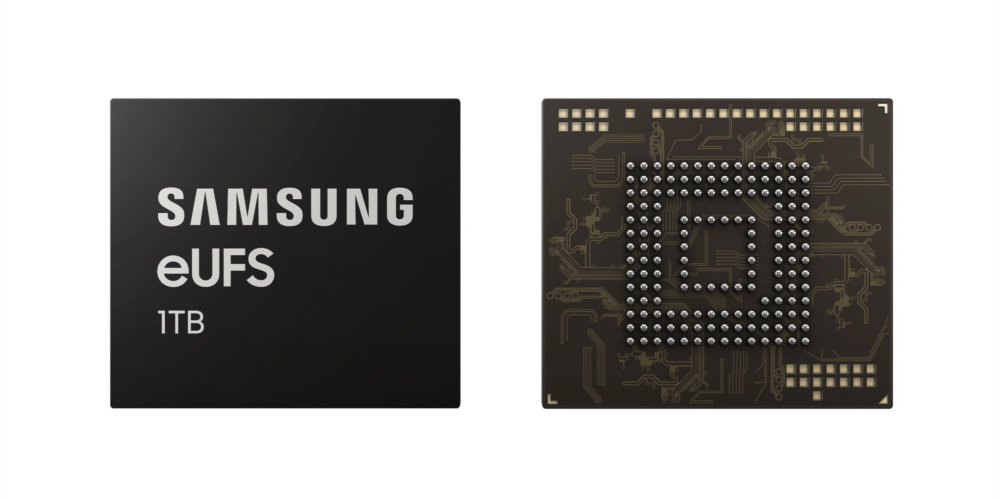Smartphones are, when you actually think about it, just little pocket-sized computers. The fact that they can make phone calls is a holdover from the days when having a phone in your car made you super-cool (or a Wall Street broker with some unusual items in your gym locker).
And, like computers, smartphones constantly upgrade to faster processors, more RAM and better storage. Samsung’s been helping with that last bit in particular, and has started producing its first 1-terabyte (TB) embedded Universal Flash Storage (eUFS) option for mobile devices.
Gee, we wonder how high storage on the Galaxy S10 is about to go…?
Go big or go home
Samsung’s doubled up on its previous largest mobile storage option (512GB on the Note 9) while retaining the old footprint, meaning that your smartphone won’t take on more weight in order to double in storage size.
The company has stacked sixteen layers of it s512-gigabit V-NAND flash memory with a new proprietary controller in order to create its 1TB embedded Universal Flash Storage chip. The internal addition is now in mass production, so it’ll soon be ready to enter smartphones of all shapes and sizes — though it’s likely to be reserved for flagship smartphones in the R20,000 to R30,000 price bracket for the moment.
Samsung’s claiming speeds of up to 1,000 megabytes per second (MB/s), twice the speed of the average 2.5in SSD (in their words) and about ten times as fast as microSD transfer rates. Random read and write speeds have also taken a jump compared to Samsung’s 512GB chips, the company says.
There’s no information about where these chips are destined to appear. A lot of speculation is that Samsung’s Galaxy S10 will be the first device to pack a native 1TB of storage but if Samsung’s doing it, a lot of others are going to want to play too. Expect Huawei, LG, Apple, et al to follow suit soon after.
Source: Samsung




